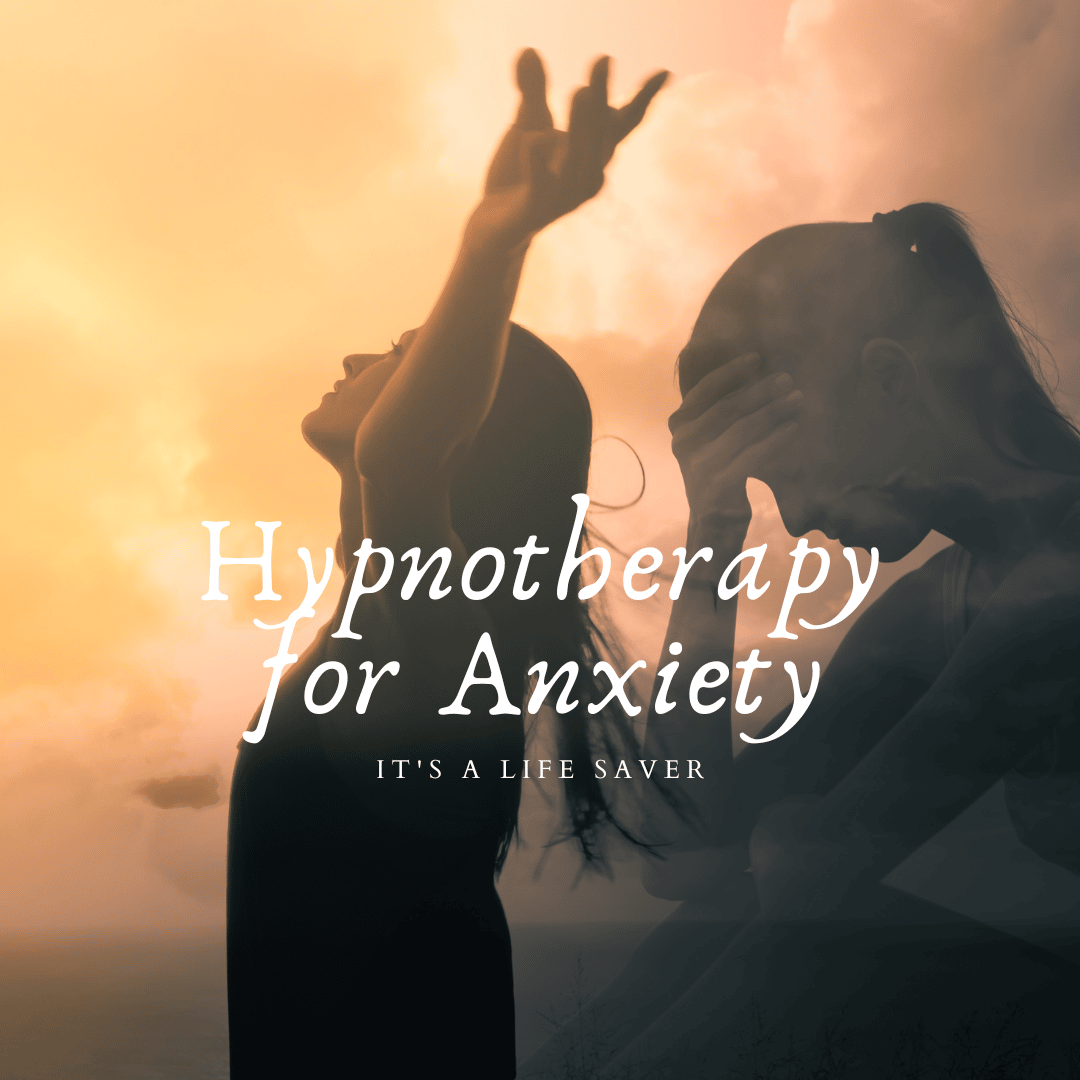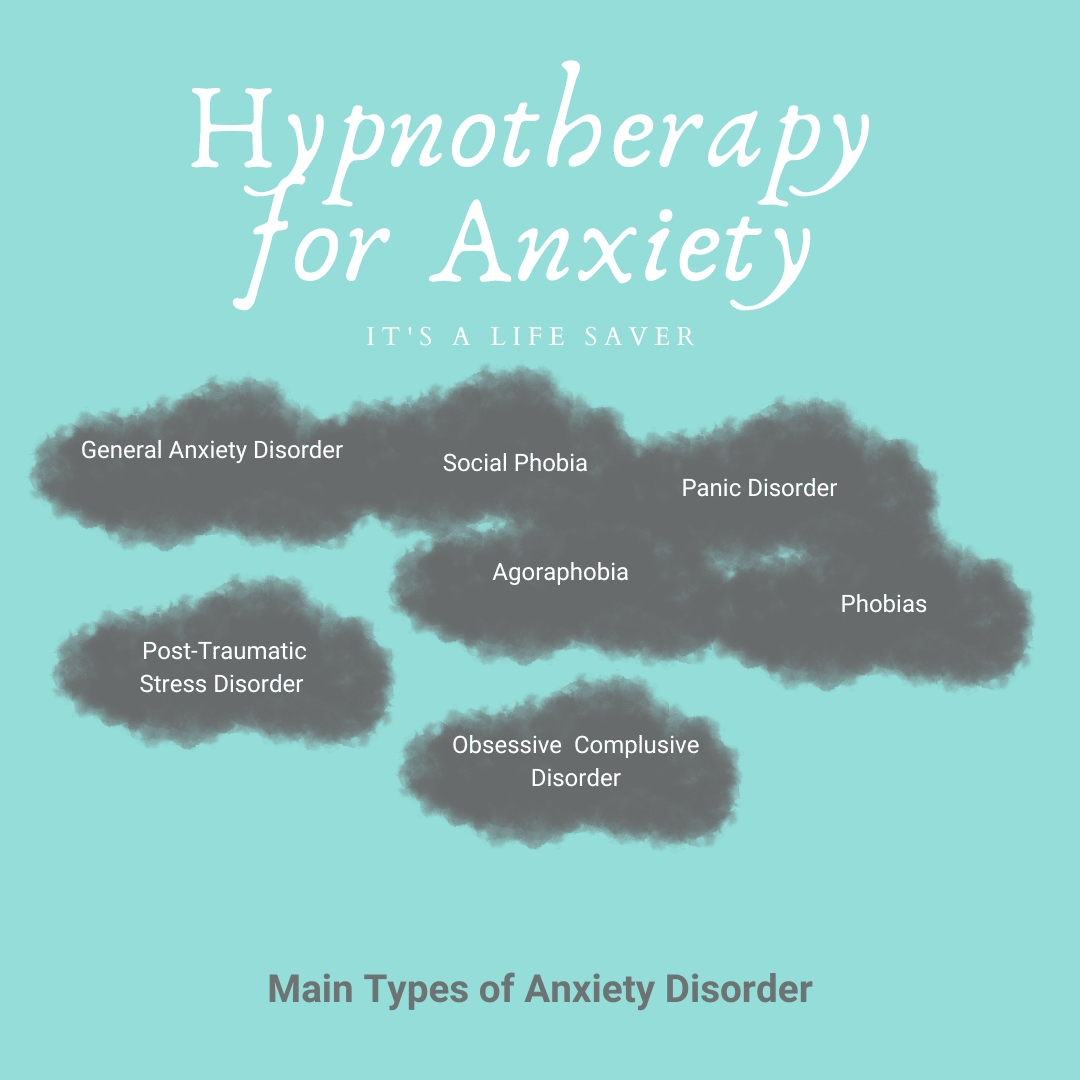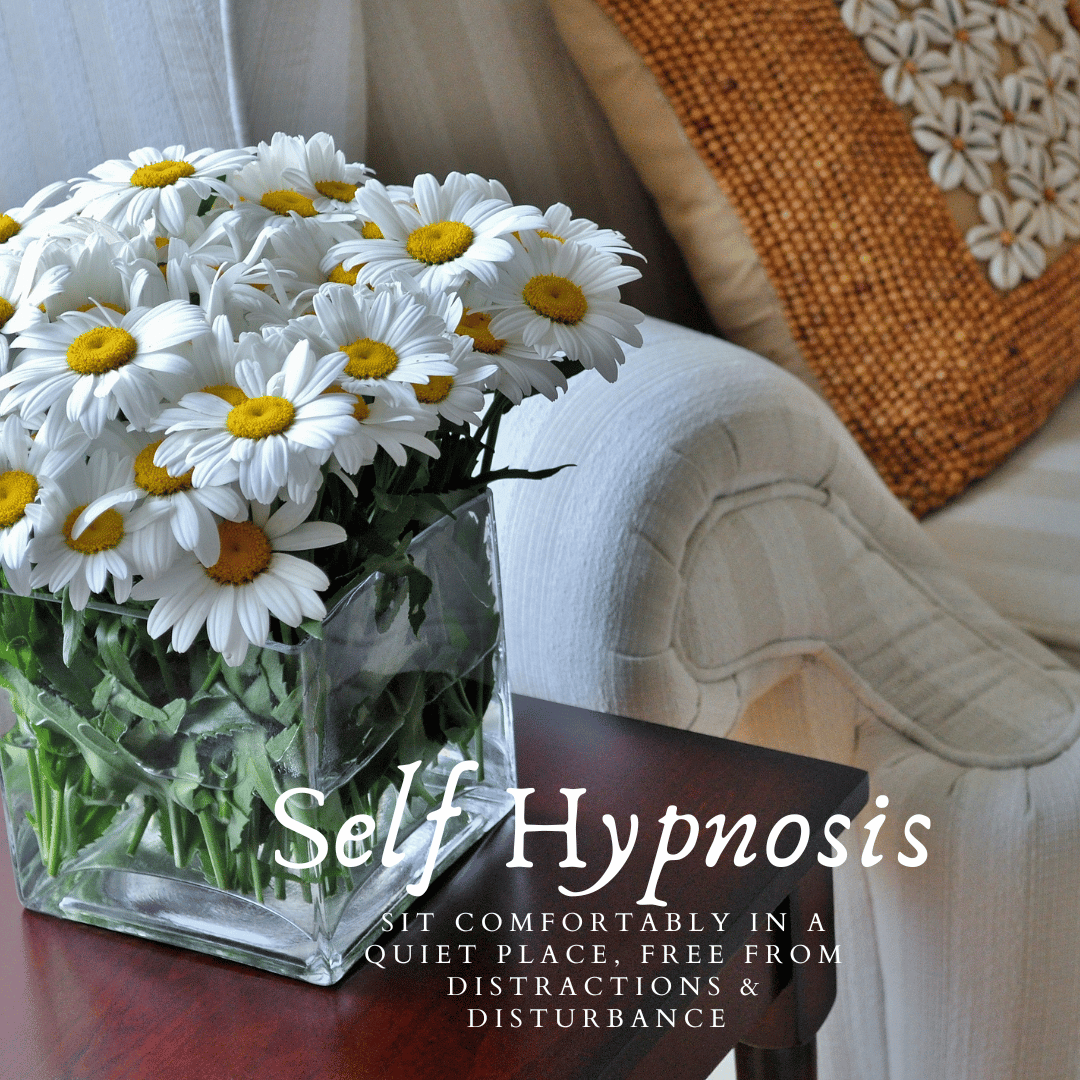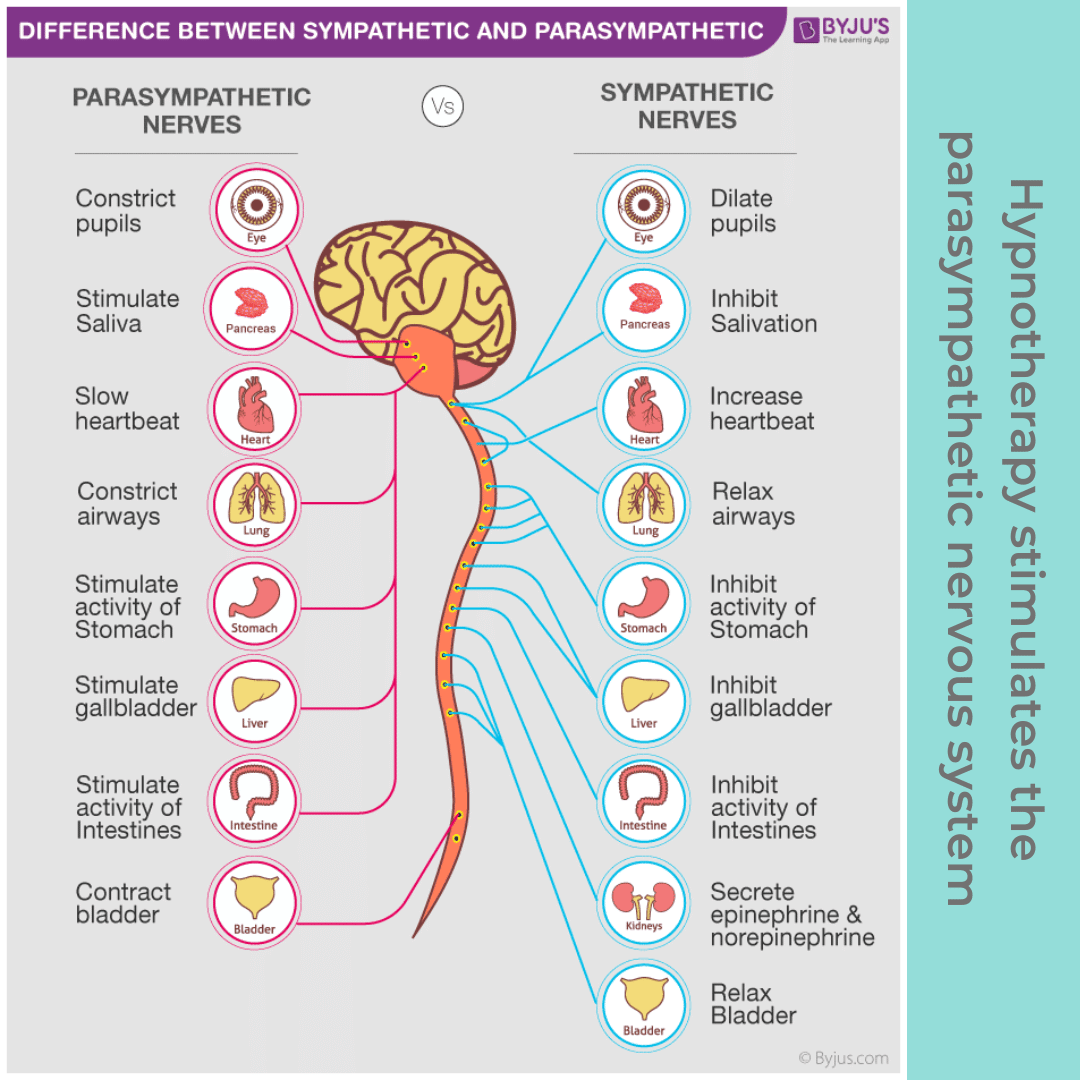Hypnotherapy for Anxiety
Does hypnotherapy work for anxiety?
As a Hypnotherapist I am frequently asked does hypnotherapy work for anxiety. Fortunately, research shows that hypnotherapy for anxiety does work, it can help some individuals manage their anxiety or eliminate it altogether. It also works best at reducing anxiety when combined with other psychological interventions, that’s why the combination of Hypnotherapy and NLP can be so effective.
Hypnosis helps manage the physiological symptoms experienced when anxiety triggers the ‘fight or flight’ response, that’s when the sympathetic nervous system kicks into action. Hypnotherapy eases you into a relaxed and calm state once you become more relaxed, research has shown (2016 study) that your brain experiences changes.
These changes enable you to focus your attention, redirecting your mind away from focusing on your fears. Hypnotherapy for anxiety reduces the fear, it helps stimulate the parasympathetic nervous system, your blood pressure and heart rate drops and breathing rates return to ‘normal’ giving you greater physical and emotional control.
“Because hypnosis exploits the intimate connection between mind and body, it provides relief through improved self-regulation and also beneficially affects cognition and the experience of self-mastery.” (Smith WH. Bull Menninger Clin. 1990 Spring;54(2):209-16.PMID: 2194608

Symptoms of Anxiety
When you are in a more relaxed state, it can be easier to avoid escalating your anxiety symptoms. Symptoms often triggered by flight or flight response stimulates the sympathetic nervous system experiences may include:-
- a feeling of impending doom
- shortness of breath
- increased heart rate (heart palpitations)
- muscle tension
- irritability
- nervous stomach
- Excessive trembling and sweating
- Nausea and dizziness
- Chest pain and headaches
- compulsive worrying
- irrational fears
- trouble socialising
- self-isolation
Am I anxious ?
How often have you asked yourself that question? I know it is one that has crossed my mind on many occasions throughout my lifetime. Thankfully, any anxiety I have experienced has been temporary. It’s been a normal emotional response to the situation I’ve been facing rather than it being an anxiety disorder.
Unfortunately, anxiety affects millions of people all over the world, so you are not alone and there’s lots of research which shows anxiety can be managed and eliminated with the right help and support.
“In the UK, over 8 million people are experiencing an anxiety disorder at any one time (Mental Health UK). “
“Anxiety disorders affect 40 million US adults every year. In other words, according to anxiety disorder statistics, they affect about 18% of the US population each year, which makes them the most common type of mental illness in the US. 31.2% of Americans experience an anxiety disorder at some point in their lifetime.”
How does hypnotherapy for anxiety work?
My approach with hypnotherapy for anxiety is to take you to the root cause. By exploring what situations trigger your stress and anxiety, we establish new insights. From these new insights we can create new healthier patterns of behaviour. Situations which caused you to feel anxious in the past will no longer trigger the same mental or physical responses in you.
An initial assessment consists of gathering information, this is the cognitive stuff, working at a conscious level we explore:-
- Past : explore what has historically triggered episodes of anxiety or panic
- Present : explore what is/are the current triggers. What physical and emotional symptoms are you experiencing. What mental images and inner dialogue are playing.
- Future: establish your desired outcome. What do you want to achieve from your sessions. What do you want to be different. How do you want to feel. How do you want your life to be moving forward
I have worked with many people who come to me because they need help managing their anxiety. Often stating they are ‘an anxious person’, they ‘have always suffered with anxiety’ and ‘I’m anxious like my mum’. These statements if used frequently begin to define you as a person, forming part of your identity and core beliefs. Consequently, if you identify and label yourself as ‘an anxious person,’ that becomes your story. Consequently it follows that if a challenging situation arises, your subconscious default will be to respond with anxiety. This is because you are on ‘auto-pilot’ and it is more comfortable and it feels safer to maintain the status quo even if it causes you discomfort rather than challenge it.
“People have a hard time letting go of their suffering. Out of a fear of the unknown, they prefer suffering that is familiar.” —Thích Nhất Hạnh
I recall working with one lady who’d self-diagnosed herself with anxiety and associated Irritable Bowel Syndrome (IBS). It soon became apparent that she had ‘inadvertently’ formed this identity and core belief to make sense of a period of anxiety that she’d experienced in her teenage years. This was when her aspirations to become a ballerina had been thwarted through injury. As a result of having hypnotherapy for her anxiety she no longer describes herself as ‘an anxious person or someone who has IBS’ and is symptom free.
When I work with hypnotherapy for anxiety with clients, we initially explore and analyse their use of language. The language patterns and phrases we use have the potential to be constructive or destructive. When you become more consciously aware of your language and how it determines how you feel and behave. As these new insights are brought to conscious awareness, we utilise these and set positive and empowering reframes e.g. ‘I experience anxiety’ or ‘I am less anxious than I have been’. Working in this way, at a conscious level, we get to loosen your identity and core beliefs. This sets the scene for a hypnotherapy deep dive into your subconscious, using new insights to influence your identity and core beliefs, which manifests healing and positive change.
What common hypnotherapy techniques are used for anxiety ?
Hypnotherapy sessions are tailored to meet your individual needs and aspirations. The number of sessions required do vary, however they may include:-
- Memory Regression
- Post Hypnotic Suggestions
- Parts work
- Anchoring to a more resourceful state (positive feelings of being in a calm, secure and safe place)
- Progressive Relaxation
- Hypnotic Exposure therapy
- Self-Hypnosis etc
Does hypnotherapy work for all types of anxiety ?
“Anxiety is an emotion characterized by feelings of tension, worried thoughts, and physical changes like increased blood pressure.
People with anxiety disorders usually have recurring intrusive thoughts or concerns. They may avoid certain situations out of worry. They may also have physical symptoms such as sweating, trembling, dizziness, or a rapid heartbeat.
Anxiety is not the same as fear, but they are often used interchangeably. Anxiety is considered a future-oriented, long-acting response broadly focused on a diffuse threat, whereas fear is an appropriate, present-oriented, and short-lived response to a clearly identifiable and specific threat.” Anxiety (apa.org)
People come to hypnotherapy either after having been given a formal diagnosis of an anxiety disorder by a mental health professional and they have subsequently discussed the appropriateness of hypnotherapy with their GP.
Or they’ve self-diagnosed. It is important however that you do not diagnose yourself and therefore I always recommend that you seek medical advice before starting hypnotherapy for anxiety.
If you feel that your anxiety does not go away and interferes with your everyday life, leaving you feeling overwhelmed and unable to cope then you may have an anxiety disorder.
This Anxiety Quiz, is a great starting point if you want to find if your anxiety is within normal ranges. This may be the first step to giving you some much needed answers and signpost you to seek appropriate support and help.
How many hypnotherapy sessions will I need for anxiety?
Typically, a minimum of 6 to 8 sessions are required for anxiety related issues, sometimes more. It depends on individual circumstances, the type and level of anxiety and your desired outcomes. All sessions are tailored to meet your individual needs and aspirations.
The Different Types of Anxiety
It is recognised that there are 7 main types of anxiety. Normal anxiety is where you worry about things related to an anxiety-provoking situation or things that make you fearful, e.g., redundancy; new job; break down of a relationship; driving test; exam nerves etc. Then there are anxiety disorders where your feelings are constant and affect your daily life. You avoid doing things and adapt your behaviour to minimise your anxiety.
The main types of anxiety disorders are:-
Generalized Anxiety Disorder (GAD)
- Social Phobia
- Panic Disorder
- Agoraphobia
- Phobias
- Post-Traumatic Stress Disorder (PTSD)
- Obsessive-Compulsive Disorder (OCD)
Hypnotherapy for anxiety online makes hypnotherapy more accessible to those people who have anxiety disorders such as social phobias; agoraphobia; OCD as it can be enjoyed in the comfort of their own home, in a safe environment.
Research shows that no matter what type of anxiety you are dealing with, hypnotherapy can help manage your anxiety or eliminate it altogether.
The first steps are to:-
- Establish your specific type of anxiety, with the help of a medical professional
- Accept that your anxiety is a problem at the moment and
- Find appropriate support and help to manage or eliminate it

Hypnotherapy for anxiety success story
I recall working with a Dog Groomer who came to me because he had Irritable Bowel Syndrome; Irritable Bladder and Emetopobia (fear of vomit), he was fearful of vomiting and seeing other people being sick. A very close relative was extremely unwell in hospital. Unfortunately because of his Emetopobia he was fearful of visiting the hospital and was beginning to experience panic attacks at the thought of it.
The stress and anxiety of not being able to visit the hospital was exacerbating his IBS and Irritable Bladder, his mind body connection was in ‘overdrive’. The fear and anxiety of Emetopobia triggered avoidance behaviour and also his physical symptoms were worsening. He was fearful of eating food, so he barely ate and was drastically losing weight. He was fearful of walking his dogs, so he took the shortest of walks, which was having a knock-on effect to his business. He was fearful of contracting a ‘tummy bug’ so stopped socialising and began to self-isolate himself from his family and friends.
His course of Hypnotherapy was very effective, he was able to identify the root cause of his fears, reach new learning, change his core beliefs which had been formed form his earliest memories as a child. Interestingly he was able to recall every occasion he’d been sick throughout his early life, life a movie in his mind. Every occasion he felt a physical sensation in his stomach or heard that someone had a ‘tummy bug’, he would continue to replay his horror movie. He could describe every detail, which was reinforcing the earlier trauma he’d experienced as a young child. With a new perspective, and belief system, his confidence grew and gently step by step with exposure therapy he was able to face his fears and overcome them. This lead to enabling him to visit his close relative in hospital and overcome his fears and live a healthier anxious free life. A positive lasting outcome!
The Benefits of Self-Hypnosis for Anxiety
The benefits of self-hypnosis are well researched. You can use Self-Hypnosis to manage and alleviate continuing symptoms of anxiety, modify your behaviour, emotions and attitudes. It can be used to help deal with problems of everyday living, stress, pain management, boost confidence and self-esteem or overcome unhealthy habits and enhance performance.
“Hypnotherapy and training in self-hypnosis can help a person achieve remarkable success in alleviating anxiety, not only in anxiety disorders, but also in any problem involving anxiety.” Hypnosis in the treatment of anxiety – PubMed (nih.gov)
There are self-hypnosis guided audios that can be downloaded from the internet, or alternatively you can choose your favourite meditation track and with practice you can guide yourself into self-hypnosis.
The self-hypnosis audio below is designed to guide you into self-hypnosis, with five minutes of ‘free time’ to find creative solutions to the answers you are seeking. The benefit of the sound track is that it is specifically created using Alpha Binaural Beats: 7 – 13 Hz which are inked to creativity and the state of conscious relaxation and calmness.
Binaural beats stimulate the brain which is very effective in producing desired therapeutic states associated with each type of brainwave.

When anxiety disrupts your life it is a problem
Research shows that anxiety disorders are the most common mental health condition with
“The Anxiety and Depression Association estimating that more than 18% of the population has an anxiety disorder. Yet only 36% of those with the disorder get help.” (Psychology Today).
Don’t add to the above statistics. Take courage, reach out, change is possible.
When anxiety disrupts your life it is a problem, fortunately no matter what type of anxiety you feel you are suffering from, the good news is that hypnotherapy for anxiety does work, and it could make all the difference to you and your life. Remember my earlier recollections of the aspiring ballerina and the dog groomer.
All you need to do is understand your anxiety better, Hypnotherapy for anxiety and NLP are extremely effective in doing just that. It takes courage and commitment to challenge your status quo and make changes in your life.
Hypnotherapy for anxiety can change your life for the better, if you are trusting and committed to change then you will achieve it. Interestingly I am often asked what is your success rate, my answer to that is, I facilitate, you ‘do the work’ – the change is in your hands.
Recent Research into the Effectiveness of Hypnotherapy for Anxiety
In a 2016 study, scientists scanned the brains of 57 people undergoing hypnosis. They found changes in the areas of the brain that allowed for greater emotional control and reduced feelings of self-consciousness. (“Does hypnosis work for anxiety, depression, and fear?”)
One 2017 review Trusted Source found that hypnosis has a significant, immediate, and prolonged effect on anxiety in people with cancer. It was especially beneficial for those with procedure-related anxiety.
Hypnosis works best at reducing anxiety when combined with other psychological interventions, including cognitive behavioral therapy (CBT) or exposure therapy.
USEFUL RESOURCES
Hypnosis for anxiety, depression, and fear: Does it work? (medicalnewstoday.com)
Differences Between Sympathetic And Parasympathetic Nervous System (byjus.com)
The Fight-or-Flight Response: Everything You Need to Know (positivepsychology.com)
Overview – Generalised anxiety disorder in adults – NHS (www.nhs.uk)
The 6 Main Types of Anxiety – Which Do You Have? (calmclinic.com)
Key-Facts-and-Figures-2019.pdf (anxietyuk.org.uk)
People seeking help: statistics | Mental Health Foundatio
Share of the U.S. population with anxiety 2019 | Statista
Headspace (Meditation App) – Headspace is the leading mindfulness and meditation app with over 70 million members. “Headspace offers guidance and exercises for all skill levels, including beginners.” (“What Is Triangulation? – Choosing Therapy”) Free Trial
“HMI College of Hypnotherapy offers free videos on hypnosis for health and self-improvement.” (“Hypnosis for Depression: How It Works, Examples, & Effectiveness”)

